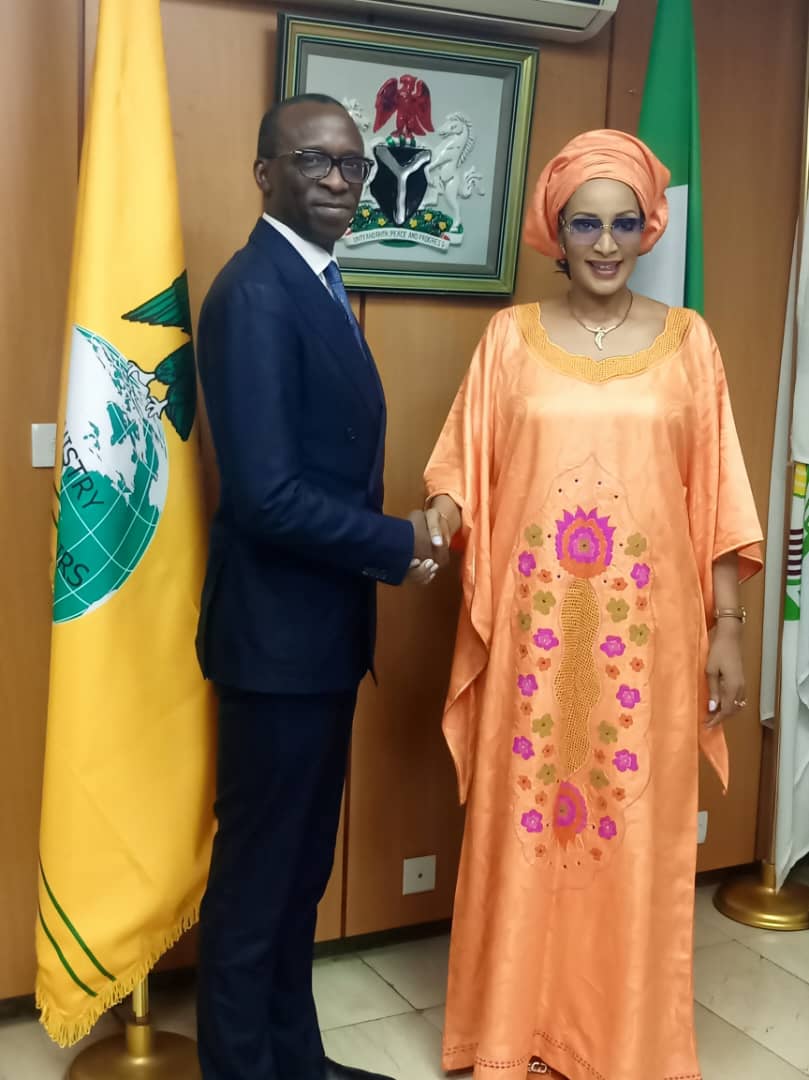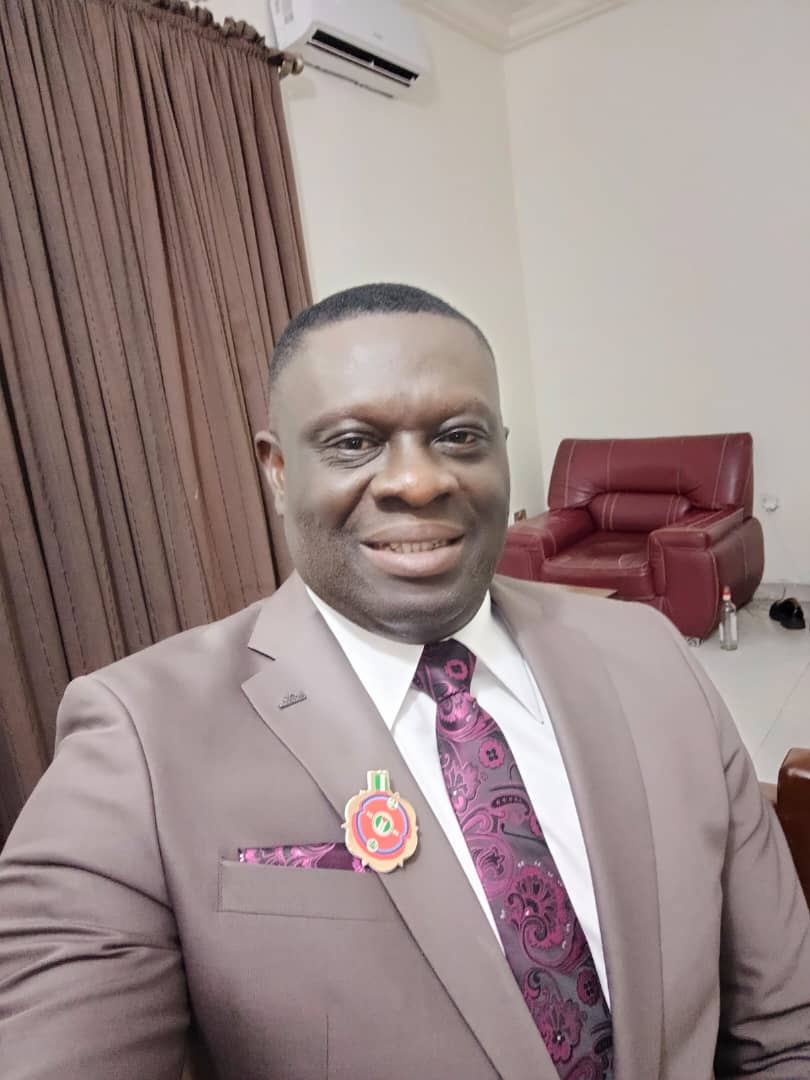News
NASS Clerk Appointment Must Prioritize Merit, Transparency – Speaker Abbas

…partners Senate President on reform bills for workers, career advancement
By Gloria Ikibah
Speaker of the House of Representatives, Rep. Abbas Tajudeen, has announced his sponsorship of bills to amend the National Assembly Service Commission (NASC) Act, which is aimed at ensuring merit and transparency in the appointment of the Clerk to the National Assembly.
The bills, co-sponsored by Senate President Godswill Akpabio, seek to introduce reforms that prioritize career progression for legislative workers and enhance efficiency within the National Assembly administrative framework.
Speaker Abbas who emphasised the need for experienced legislative professionals to lead the National Assembly bureaucracy, noted the controversies that often mar the selection process for the Clerk to the Assembly.
The Speaker stated this during the presentation of the exit report by the 5th Commission of the National Assembly Service Commission, led by its Chairman, Engr. Ahmed Kadi Amshi, on Monday in Abuja.
He said: “One persistent challenge facing the National Assembly Service has been the lack of a well-defined succession plan. The recurring crisis surrounding the appointment of the Clerk to the National Assembly and other key positions highlight the need for urgent reform. The absence of clarity in succession plan undermines the service’s stability and efficiency. As the legislative arm of government, the National Assembly cannot afford such disruptions.
“To address this, I am pleased to inform you that the National Assembly, led by my counterpart in the Senate, His Excellency Sen. Godswill Akpabio, GCON, along with myself, has initiated amendments to the NASC Act. These amendments aim to streamline the qualifications and processes for appointing key officers, thereby ensuring merit-based and transparent succession.
“Furthermore, the amendments will provide new entrants into the Service with clear guidelines on career progression, eliminating controversies surrounding promotions and aligning the scheme of service with the broader vision of the Commission and the National Assembly.”
Speaker Abbas reaffirmed the steadfast commitment of the House to fostering a strong and collaborative partnership with the NASC.
“As partners, we commit to fostering an efficient, productive, and professional National Assembly Service,” he said, adding that through collective efforts, the House would ensure that the National Assembly “continues to grow and develop to serve the evolving and complex needs (of the National Assembly) and the constituents we represent.”
The Speaker highlighted that the presentation reflects a commendable tradition that has strengthened and advanced the institutional growth of the Commission over the past 25 years.
He emphasised that it reinforces the principles of accountability, transparency, and continuity, which are fundamental to effective governance.
Speaker Abbas also acknowledged the significant role parliamentary service commissions play in shaping and consolidating democracies, especially in developing nations, and noted that the NASC has been instrumental in supporting the National Assembly’s transformation into the vibrant institution it has become.
“In contrast to the Federal Civil Service Commission and the Judicial Service Commission, which have long histories and greater resources, the NASC has faced significant challenges. Nevertheless, it has made impressive progress in enhancing the institutional capacity of the National Assembly, ensuring it meets its constitutional responsibilities.”
While congratulating the outgoing Chairman of the NASC, Engr. Ahmed Kadi Amshi and his team of Commissioners, he thanked them for their service to the National Assembly and Nigeria, and said that over the past five years, their stewardship has advanced the Commission’s mission and vision and strengthened the institutional backbone of the legislative process.
Speaker Abbas further noted that their efforts in upholding the Commission’s mandate as a cornerstone of democracy, while fostering professionalism within the National Assembly bureaucracy, are highly commendable.
He said: “Over the last 25 years, the National Assembly has achieved significant milestones. The legislature has transformed into a formidable institution, contributing to national development through effective lawmaking, oversight, and representation. The remarkable growth of the various organs and agencies of the National Assembly highlights the importance of institutional development.
“However, we must not rest on our laurels. The journey to establish a strong, independent, and productive legislature requires continuous improvement, innovation, and a commitment to excellence.”
The Speaker urged the NASC to continue focusing on recruiting capable personnel with the requisite skill sets, enhancing the capacity of its workforce, and maintaining discipline within the Service.
“Without these essential elements, no institution can thrive. A well-trained and disciplined bureaucracy forms the foundation of an effective legislature. The National Assembly Service must be primed to attract and retain the best talents while fostering a culture of professionalism and integrity,” he stated.
Earlier while presenting a 13-page document to the Speaker, Amshi highlighted the challenges and successes of the NASC in the last five years.
The chairman noted that the outgoing Clerk to the National Assembly, Sani Magaji Tambuwal, would retire in five days’ time, while the outgoing NASC board would be working with the incoming Clerk to the National Assembly, Barrister Kamoru Ogunlana for only five days before the end of its tenure.
News
US aviation authorities panic as plane goes missing midair

US authorities are looking for a small plane carrying 10 people that has been reported missing in the state of Alaska.
The US Coast Guard for the Alaska region said a Cessna Caravan craft was 12 miles (19km) offshore on a flight from Unalakleet to Nome when “its position was lost”.
The two cities are some 146 miles from each other across the Norton Sound, an inlet of the Bering Sea on Alaska’s western coast.
Search and rescue crews “are working to get to the last known coordinates” of the flight, state officials said in a statement.
They said they had been notified of an “overdue” aircraft operated by the airline Bering Air at 16:00 local time on Thursday (01:00 GMT).
The 10 people on board comprised nine passengers and a pilot, the update from the Alaska Department of Public Safety said. There was no information immediately available about who was on board.
The volunteer fire department in the landing city Nome said the pilot had told air traffic controllers that “he intended to enter a holding pattern while waiting for the runway to be cleared”.
David Olson, director of operations for Bering Air, was quoted by Sun UK as saying that the aircraft left an airstrip in Unalakleet at 2:37 pm before officials lost all contact less than an hour later.
It was 12 miles offshore when it was last sighted, according to the US Coast Guard.
Nome Volunteer Fire Department said in a statement: “We are currently responding to a report of a missing Bering Air caravan.
“We are doing an active ground search from Nome and from White Mountain.
“Due to weather and visibility, we are limited on air search at the current time.
“National Guard, Coast Guard, and Troopers have been notified and are active in the search.”
News
Nigeria Backs Olufemi Elias for ICJ Seat – Ambassador Ojukwu

News
Proposal for creation of 31 states demands critical examination, outright condemnation -DG, CCLCA, Dr Nwambu

…says zoning arrangements clearly favoured a section of Nigeria
By Emmanuel Agaji
The Director General of Centre for Credible Leadership and Citizens Awareness, CCLCA Dr Gabriel Nwambu has called for critical examination and outright condemnation of the move to create 31 additional states in Nigeria.
Dr Nwambu disclosed on Friday in a position paper entitled: ‘Position Paper: Condemnation of the Proposal for New State Creation in Nigeria’ declaring that:
“The recent proposals for the creation of 31 new states by the House of Representatives Committee warrant critical examination and, ultimately, outright condemnation.
“As Nigeria navigates through significant economic challenges, it is essential we approach governance reforms with an understanding of current realities.
“It is clear that the creation of additional states is not a viable solution to our nation’s pressing issues and, in fact, could exacerbate the situations we are working hard to overcome.
Current Viability of Existing States
“As it stands, Nigeria is currently composed of 36 states, including the Federal Capital Territory. A disconcerting number of these states are not financially viable. Many states are unable to meet basic obligations, such as paying the minimum wage of ₦70,000.
He explained that: “The crux of the matter is that some states have reached a point of insolvency, making the idea of creating new states—a process that demands additional financial resources—even more untenable.
” Rather than resolving existing state-level inefficiencies, the introduction of new states would only compound financial burdens on an already strained federation.
Zoning and Geopolitical Implications
“The proposed new states raise critical concerns regarding zoning and geopolitical distribution, particularly highlighting an imbalance favoring northern regions.
“The potential increase in Local Government Areas in the North signifies not just a concentration of political resources but also increased financial allocations to that region. This further marginalizes regions like the South East, where the new proposals result in fewer states. Such an approach fails to foster national cohesion and equity among the disparate regions of Nigeria, risking further discord rather than unity.
Cost of Governance Concerns
“The timing of these proposals is troubling, especially as we engage in discussions aimed at reducing the cost of governance in Nigeria.
” The addition of 31 new states would inherently lead to an increase in legislative assemblies, senators, and representatives, thereby inflating the political structure rather than streamlining it. Rather than focusing on mechanisms to enhance governance efficiency, we would instead be entrenching a model that is financially unsustainable.
Imminent National Challenges
“Moreover, the pressing issues that Nigeria faces—ranging from rampant insecurity, widespread unemployment, inadequate healthcare, and dwindling infrastructure—demand our immediate attention and resources. At this pivotal moment, the creation of new states distracts from tackling these fundamental concerns.
” It is crucial to consider how we can strengthen existing governance structures, enhance service delivery, and ensure that government revenues transparently address the needs of our citizens, rather than atrophying under the weight of new state establishments.
Conclusion
“In conclusion, the Centre for Credible Leadership and Citizens Awareness strongly condemns any proposals for the creation of new states in Nigeria.
“Such actions would not only worsen our current economic quagmire but would also lead to heightened regional disparities, escalating governance costs, and distract from the critical reforms and policies necessary to improve the lives of Nigerians across the country.
“We urge policymakers, opinion leaders, and the general public to prioritize pressing developmental needs over cosmetic political restructuring.
“The focus should remain on enhancing the efficiency and viability of existing states, tackling economic challenges head-on, and fostering true national unity. The call for new states is neither a panacea for our problems nor a justifiable use of national resources at this time.
“Thank you for considering this position paper. We hope it contributes to the necessary dialogue surrounding the governance challenges we face in Nigeria.
-

 News17 hours ago
News17 hours agoFG ends JSS, SSS, begins 12-year basic education model
-

 News17 hours ago
News17 hours agoTenure of National Assembly Service Commission Board ends today
-

 News13 hours ago
News13 hours agoLabour Party mourns Late Anambra Lawmaker, Azuka
-

 Metro13 hours ago
Metro13 hours agoPolice Inspector Murdered In Ondo, Corpse Burnt
-

 News21 hours ago
News21 hours agoEha-Amufu College Upgrade: Melubari Confers With Reps Nnamchi, Fulata
-

 News13 hours ago
News13 hours agoLagos installs speed limit monitors, imposes N50,000 fine
-

 News18 hours ago
News18 hours agoAs an undergraduate I never had luxury of staying in main campus – Akpabio shares personal insights
-

 News13 hours ago
News13 hours agoBreakthrough In Pancreatic Cancer Treatment Confirms Pastor Adeboye’s Prophecy On Medical Breakthrough In Scientific Research

















